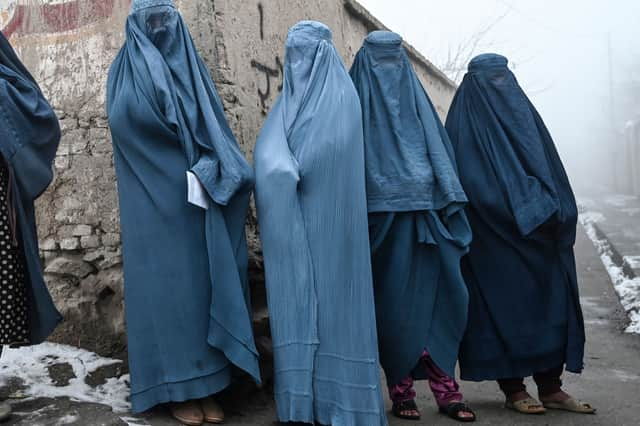New Morality Laws
KABUL: This week, Afghanistan’s Taliban formally codified a comprehensive set of morality laws, introducing new regulations that mandate significant changes in both personal appearance and public behavior.
The new laws, which were officially published by the Justice Ministry, require Afghan women to cover their faces fully and Afghan men to grow beards. Additionally, the regulations include a ban on playing music in vehicles.
These rules are based on a decree issued by the Taliban’s supreme spiritual leader in 2022 and have now been ratified and enacted as official law.
The Ministry for the Prevention of Vice and Propagation of Virtue, which is responsible for enforcing these morality laws, has already been implementing similar requirements and has detained thousands of individuals for non-compliance.
However, it remains uncertain if the formal publication of these rules will lead to stricter enforcement.
The new morality laws have been met with substantial criticism from human rights organizations and international governments.
Since the Taliban regained control of Afghanistan in 2021, their restrictions on women’s rights and freedom of expression have been a major point of contention.
Western countries, particularly the United States, have indicated that the formal recognition of the Taliban’s government is largely contingent on their reversal of policies regarding women’s rights and the reopening of high schools for girls.
The 35-article morality law, enacted and published on Wednesday, was ratified by the Taliban’s Supreme Spiritual Leader Haibatullah Akhundzada.
According to a statement from the Justice Ministry, the law obligates the Ministry for the Prevention of Vice and Propagation of Virtue to enforce Sharia principles by promoting good behavior and forbidding what is deemed immoral.
Under these new regulations, women are required to wear attire that fully covers both their bodies and faces, while men are prohibited from shaving their beards and are required to adhere strictly to religious prayers and fasting.
Penalties for violating these laws include a range of measures from verbal warnings and public advice to more severe punishments such as confiscation of property, detention for periods ranging from one hour to three days in public jails, and any other measures deemed appropriate by the enforcement authorities.


